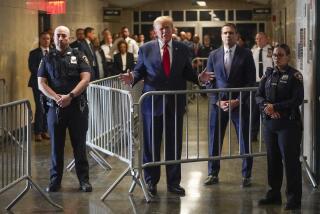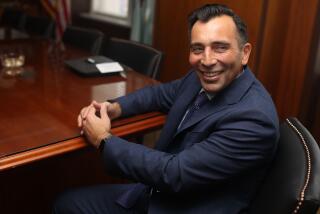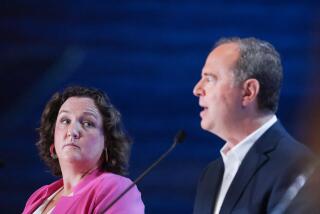Why would anyone say Dennis Hastert was ‘squeaky clean’?
Many details of the Dennis Hastert case remain murky. What’s alleged by a federal indictment and law enforcement officials is that the former House speaker paid $1.7 million to conceal sexual abuse against a former male student he knew during his days as an Illinois schoolteacher and coach. But the particulars of the arrangement, the nature of the alleged abuse, and the identity of the recipient are unknown.
What’s equally confounding is the rush of pundits and colleagues to declare their shock at how someone as ethically pure as Hastert could have connived at this scheme, which involved splitting bank withdrawals into small bundles to evade banking regulations, according to the indictment.
On Friday’s edition of MSNBC’s “Hardball,” for example, host Chris Matthews described Hastert as “one of the rare clean cut guys in the business, with no problems with ethics.” He was seconded by the Washington Post’s Jonathan Capehart, who spoke of Hastert’s “squeaky clean” reputation: “He was the last persosn you would equate with any scandal.” John Stanton, BuzzFeed’s Washington, D.C., bureau chief, observed that while a scandal over budget “earmarks” (handouts to congressional members’ districts or pet projects) erupted on Hastert’s watch, “he was never directly involved in any of this.”
One marvels at their short memories. Far from being “squeaky clean,” Hastert stands more as the very symbol of the kind of casual corruption that infects Congress, contributing powerfully to the institution’s low public standing. Not only was he associated with an earmark that does appear to have enriched him directly, he moved smoothly from Congress into Washington’s lobbyist culture, collecting millions of dollars for representing big corporations with business before his old chamber.
Hastert’s net worth when he entered Congress in 1987 after a career as a teacher, coach and Illinois state representative was reportedly less than $270,000. When he left in 2007, he had between $3.1 million and $11.3 million in assets. (That wide range is an artifact of congressional financial disclosure rules, which leave enough wiggle room to make precise measurements of members’ wealth impossible.) To make payoffs of $1.7 million--part of a larger plan, the feds say, to fork over $3.5 million--one must first have the millions.
How Hastert acquired those millions is no secret. Let’s look at the record.
Hastert’s profiting from an earmark was outlined in 2006 by the watchdog Sunlight Foundation and widely covered at the time. Essentially, he invested in rural Illinois farmland that soared in value when a federally subsidized highway--earmarked by Hastert--was routed to run a few miles away.
The highway project eventually fell through, but by then Hastert and his partners had sold at a profit. The arrangement was shrouded behind a trust that didn’t bear Hastert’s name. Hastert’s office confirmed his participation to Sunlight, but asserted that the highway was too far from the tract to influence its value.
After retiring from Congress, Hastert joined the Washington law-and-lobbying firm Dickstein Shapiro. A Washington Post profile this weekend depicted him as sort of a reluctant lobbyist, but he must have done something for clients such as Lorillard Tobacco and the government of Turkey to warrant the firm’s collecting millions of dollars in fees. Hastert also served on the board of CME Group, the owner of the Chicago Mercantile Exchange and other commodity exchanges, which paid him an annual fee of up to $205,000. He resigned from Dickstein and CME following his indictment last week.
None of this is illegal, apparently. But it all adds up to less than “squeaky clean” behavior. It’s just what the public has come to expect from its elected officials in Washington: The quiet lining of pockets while in office, followed by the leap for the main chance as a lobbyist after retirement. The failure of Washington commentators to see this as dirty explains a lot about how politicians get away with it.
Keep up to date with the Economy Hub. Follow @hiltzikm on Twitter, see our Facebook page, or email mhiltzik@latimes.com.







